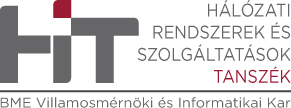Comparative Analysis of IPv6 Transition Technologies for IPv4aaS
The topic is for MSc students on English programs. (Angol nyelvű MSc képzés hallgatói számára szóló téma.)
IPv4 and IPv6 are two incompatible protocols, but they will co-exist for a long time. IETF has standardized a high number of IPv6 transition technologies, which enable communication in various communication scenarios [1]. In the upcoming phase of IPv6 transition, more and more ISPs intend to use only IPv6 in their core and access networks, however, they need to provide IPv4aaS (IPv4 as a Service), because their users need IPv4 for several reasons (e.g. due to IPv4 only applications or IPv4 only content providers). The five most prominent IPv4aaS technologies are 464XLAT, DS-Lite, lw4o6, MAP-E and MAP-T [2]. They have different advantages and disadvantages [2].
The applicant should select the most important aspects for their comparison (e.g. performance, security, efficiency of IPv4 address sharing, etc.) and carry out a comprehensive comparative analysis according to the selected aspects including experimenting and taking (benchmarking) measurements.
The applicant should perform the following tasks:
- Get acquited with the five IPv4aaS technologies and the aspects for comparison described in [2].
- Study the operation of the selected technologies and its implementations (e.g. in virtual environment).
- Select the aspect(s) for comparison (e.g. performance, security, efficiency of IPv4 address sharing, etc.).
- Perform the comparative analysis of the technologies both according to the selected aspects.
Multiple students may register for this topic. The first two steps may be performed as a team work. (E.g. each student digs deep into some of the technologies and shares his knowledge with the others.) At point 3, each student has to select his own aspects for comparison, and point 4. is an independent work for each student.
This topic is suitable for a presentation at the Students' Scientific Conference (TDK) and/or writing an MSc final project thesis, and the topic is worth choosing, if you have such intention. If the quality of the work is good enough, then the supervisor plans to publish a common paper with the student, which can be a significant advantage for the student (e.g. in case of PhD studies).
References:
[1] G. Lencse and Y. Kadobayashi, "Comprehensive survey of IPv6 transition technologies: A subjective classification for security analysis", IEICE Transactions on Communications, vol. E102-B, no. 10, pp. 2021-2035. DOI: 10.1587/transcom.2018EBR0002 Full paper in PDF
[2] G. Lencse, J. Palet Martinez, L. Howard, R. Patterson, I. Farrer, "Pros and Cons of IPv6 Transition Technologies for IPv4aaS", active Internet Draft, Jan 9, 2021. https://tools.ietf.org/html/draft-lmhp-v6ops-transition-comparison
Required language skills: English
Further requirements: knowledge of computer networks, persistence in studying IETF RFCs, working with Linux

